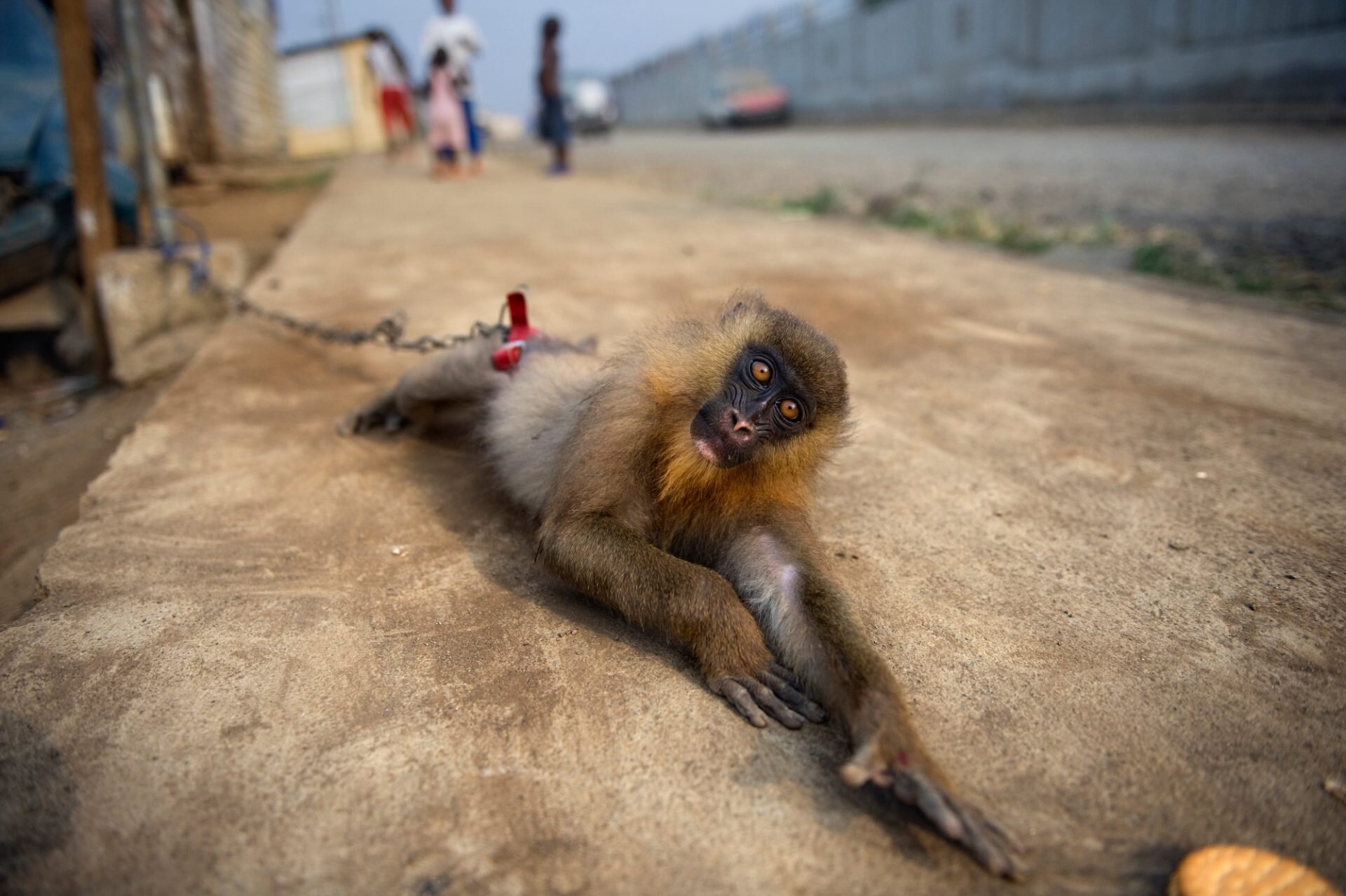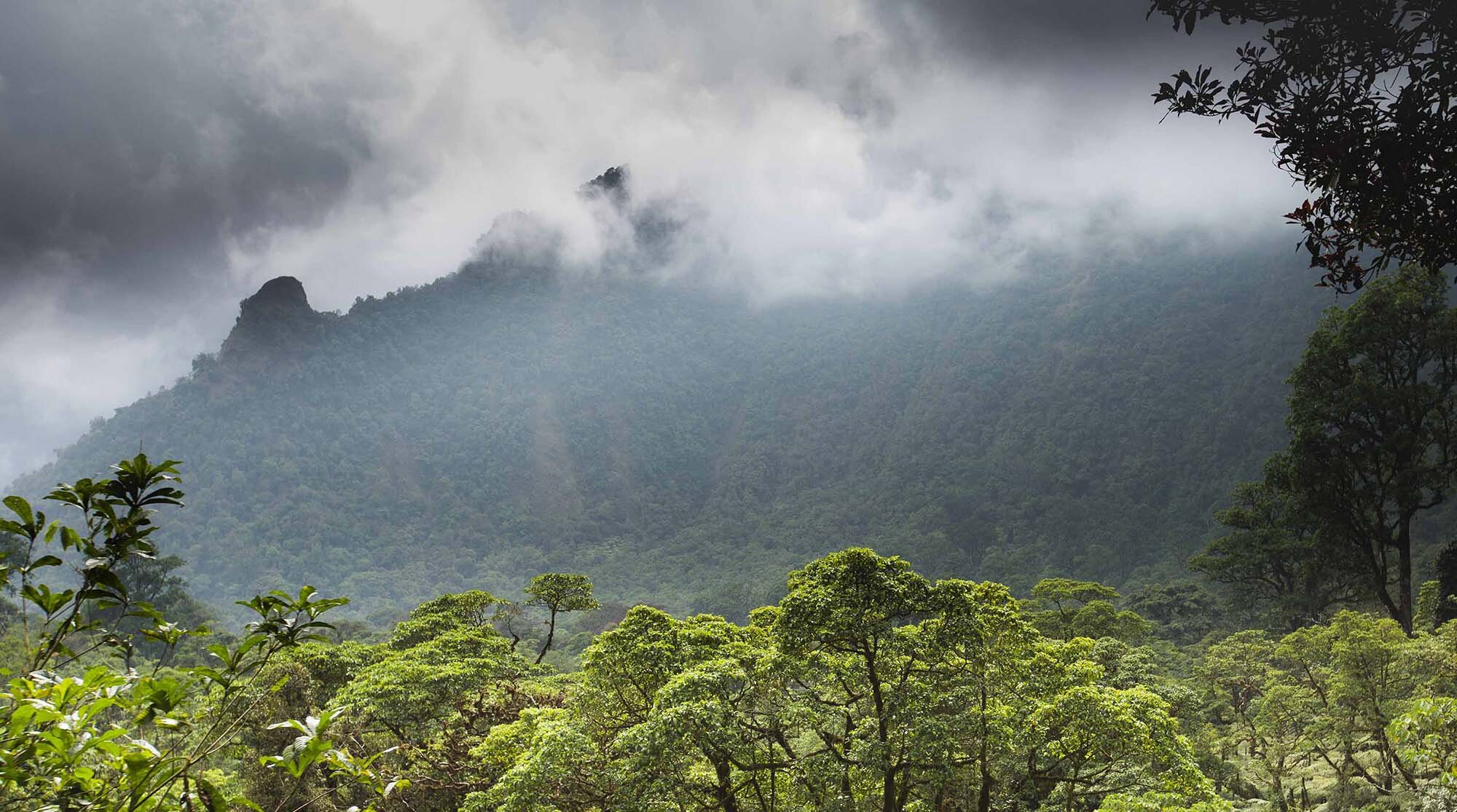
Bioko Rescue Center
We at The Drill Project believe that one of the only ways we can put an end to the illegal trafficking of wildlife is to create the country’s first wildlife rescue and rehabilitation center on Bioko Island. Currently, there is no way to rescue live animals from the bushmeat and exotic pet trade on Bioko Island and with no legal enforcement of international laws, the problem will continue to persist until these primates are driven to extinction. We hope to change that and begin Bioko’s journey of becoming a conservation success story.
Help us make this story a reality.
The Drill Project is currently conducting impact research, feasibility studies and undergoing the proper legal procedures to create this much needed resource in the fight against extinction. Once completed we will launch our fundraising campaign to begin construction and then together, we can make a difference for these animals and the people of Equatorial Guinea.
Monkey in a bushmeat market, Malabo, Equatorial Guinea. Photo by Justin Jay
The Need is Now
The demand for bushmeat on Bioko is extremely high, and among the most coveted species are monkeys. To supply this demand for consumption, there is a strong network of traffickers that trade many species throughout the island. It is common to find primates in captivity: in small cages, tied to poles or inside private houses. The conditions in which they live and the impossibility of meeting their needs as a species are condemning these animals to certain death or abandonment as adults.
Although we focus most of our efforts on conserving these animals in their natural habitat by fighting illegal hunting and conducting research, we believe it is vitally important to give a second chance to all these animals that have been removed from their natural habitat.
-
Ecological value
There are several endangered species endemics to Bioko Island, including the Bioko Island drill monkey (Mandrillus leucophaeus peonsis). With a growing population and shrinking forests, the island’s isolated ecosystems are being strained to the point of local extinctions in some areas.
-
Zoonotic diseases
Primates are reservoirs of multiple viruses and bacteria that can transmit more than 20 diseases to humans, some of them fatal. Among the best known are tuberculosis, rabies, leprosy and even Ebola and various forms of encephalitis, leukemia, hepatitis, hemorrhagic fevers and not forgetting the new danger of emerging diseases.
-
Law enforcement
In 2007 the government of Equatorial Guinea issued a presidential decree that outlawed the hunting, sale and consumption of primates. Currently, wildlife crimes are not pursued by authorities and there is a general lack of public awareness towards the threats of wildlife trafficking.
Finding a Solution
In addition to the above-mentioned problems facing Bioko primate species and populations, individual monkeys are continuously subject to the pain and suffering of captivity for the pet trade or for bushmeat consumption. Moreover, the fact that the primates remain in the hands of traffickers, who are not required to take preventive sanitary measures, nor are they informed of the dangers of disease transmission while selling them, would put the entire population at risk due to the possibility of a potential epidemic.
It is the goal of the Bioko Wildlife Rescue Center (BRC) to collect and care for live primates to alleviate pressures on local populations and to inform the public of the threat these species face. The BRC will be the first wildlife rescue and rehabilitation center for the country of Equatorial Guinea and will create a much-needed opportunity to care for animals who currently have no opportunity to be rescued.
Our proposed rescue center will be established with the highest level of quarantine protocols, veterinary science and animal husbandry in order to maximize our potential. We not only want to rehabilitate animals taken from the wild, but to return them once again to their natural habitat without harming wild populations.
By caring for the individuals of a species and having a permanent presence on Bioko Island, the BRC will take a multi-faceted approach to combined conservation efforts focusing our work towards saving wildlife and creating better lives for the people of Bioko.
Our pillars
-

Rescue and rehabilitation
For us, it is essential to be able to give a second chance to animals that are stolen from their mother's warmth and that, otherwise, would be condemned to abandonment or death.
-

Education
Education is a powerful tool to change things. Giving local people the chance to come face to face with the problem behind the reality that the animals face in Bioko and how you as an individual can change it will empower people with the most valuable weapon, knowledge.
-

Community development
Unemployment is a big issue in all Southern Bioko. We will be working closely with local people to build a strong community development project to help them in a long-term way to improve their economic situation and the access to new opportunities.
-

Ecotourism
Ecotourism contributes significantly to the conservation and preservation of natural resources as well as to cultural patrimony. The local residents accrue economic and social benefits thereby contributing to the project's long-term success. In addition to creating ties between local people and tourists, it promotes environmental education


